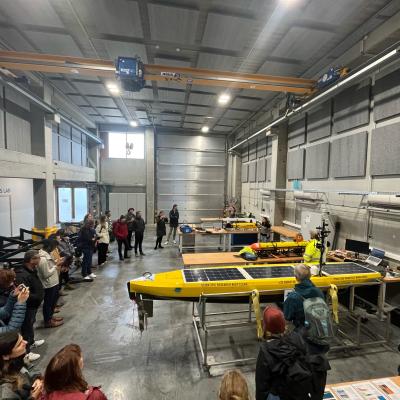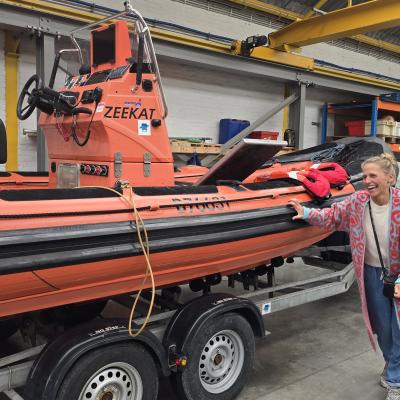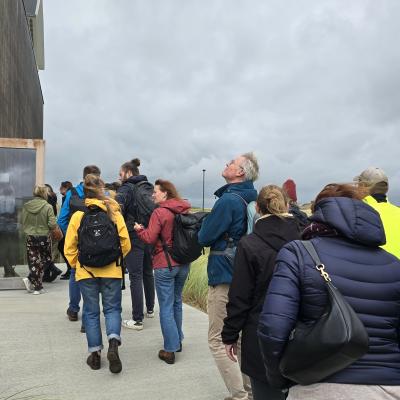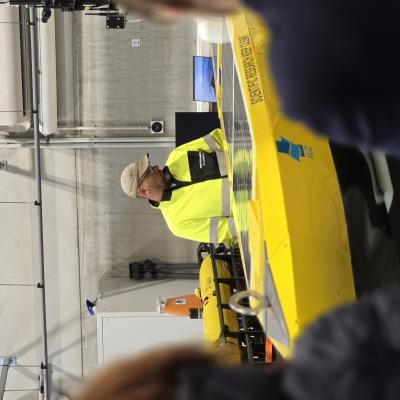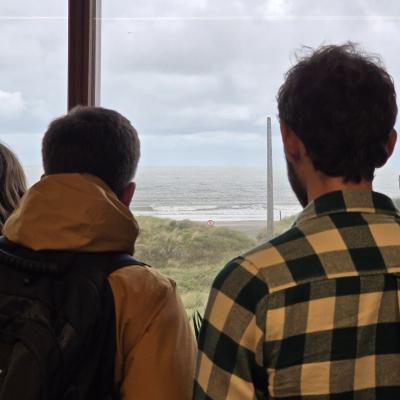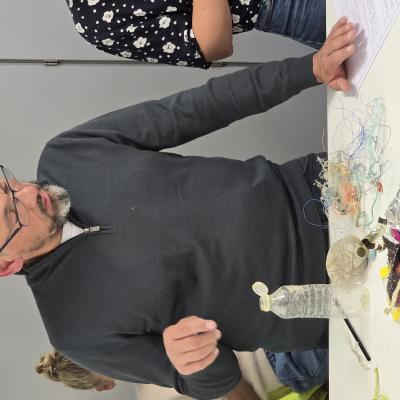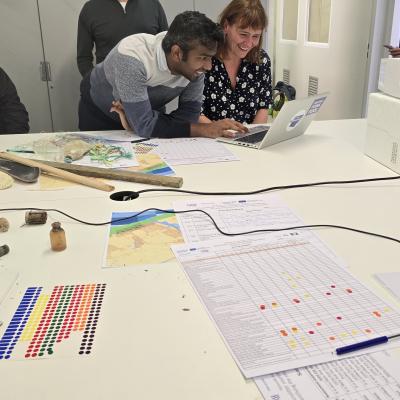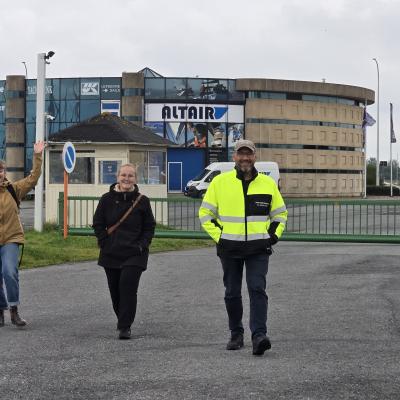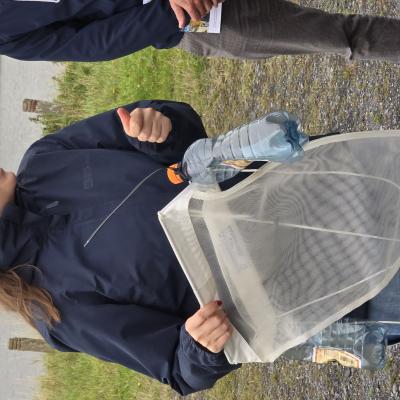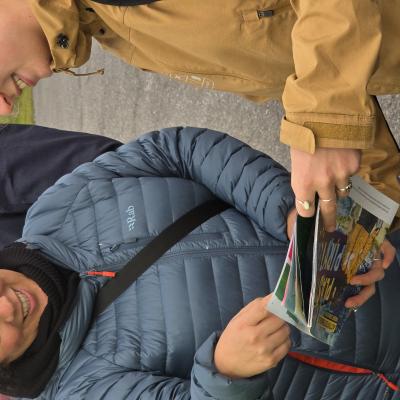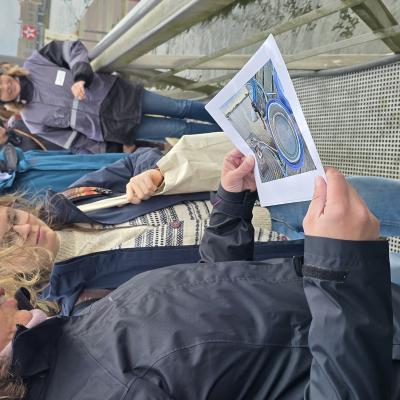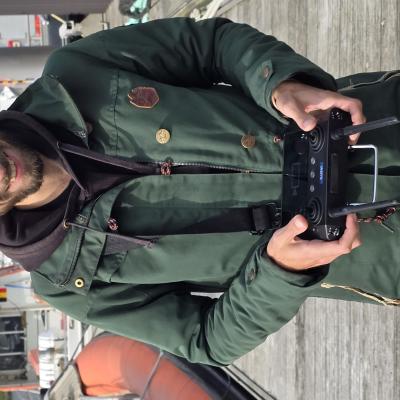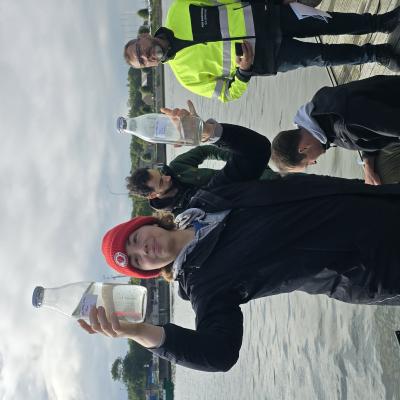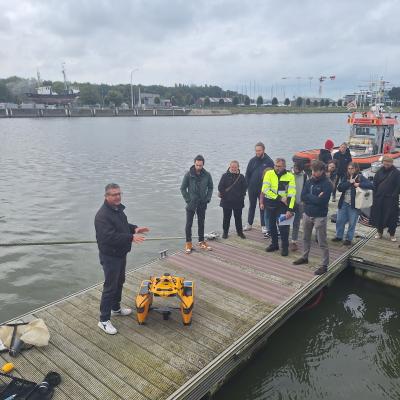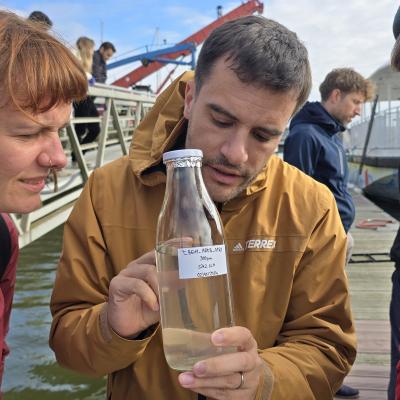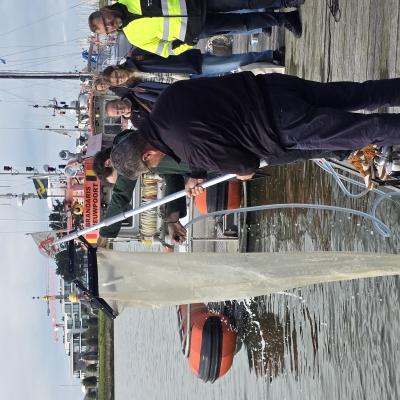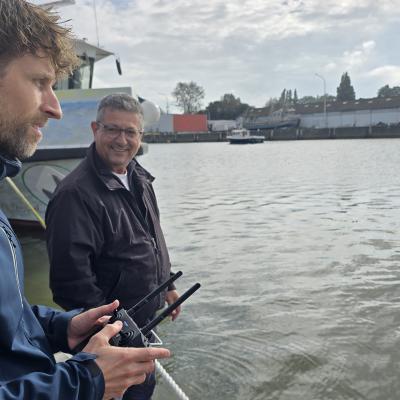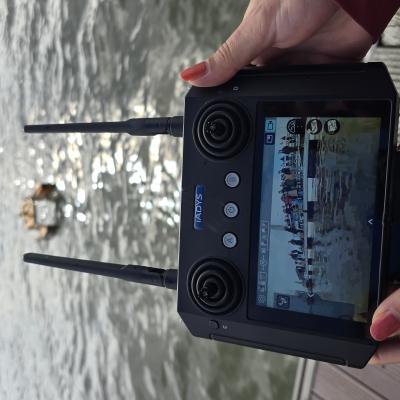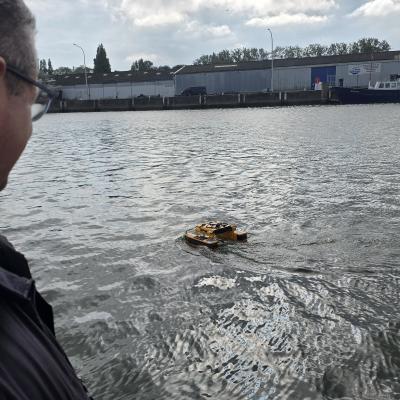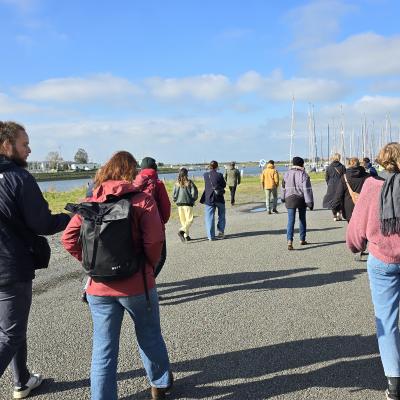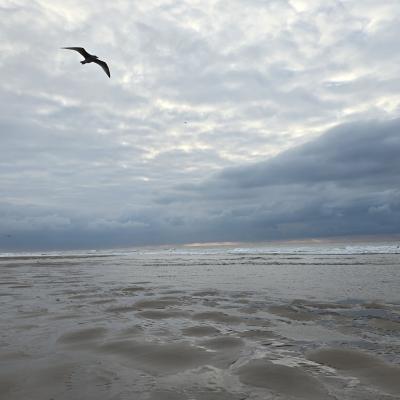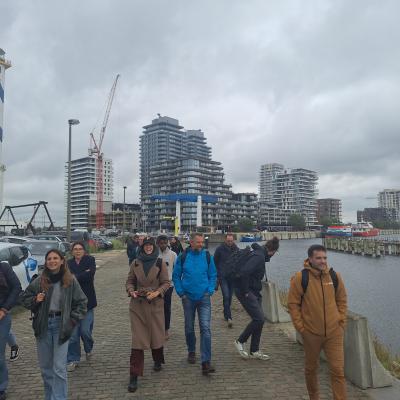The TREASURE project held another two-day partner meeting at the Flanders Marine Institute (VLIZ) in Oostende, Belgium, in October 2024. All TREASURE partners from across the North Sea region gathered to share progress, discuss challenges, and map out future steps in the fight against riverine and marine plastic pollution.
Our partners at VLIZ have been incredible hosts and facilitated a fruitful exchange that has been accompanied by exciting insights into the work that VLIZ is carrying out within TREASURE and other inspiring projects. The project meeting has made a significant contribution in the project’s ongoing efforts to reduce plastic waste in marine environments, focusing on data collection, removal technologies, policy influence, and behavioural change.
Day 1: Setting the Stage for Collaborative Action
The meeting began with an introduction by Ine Moulaert from VLIZ, followed by an insightful presentation from Maxime Depoorter of the Province of West Flanders. Maxime highlighted the Belgian coastline’s unique environmental challenges and the province's efforts to tackle marine pollution through various initiatives. She also gave the consortium an introduction to the province’s work within the North Sea Commission and to its “Action Plan: Healthy Marine Environment 2025-2026.”
Following the introductions, each partner presented updates on their respective Living Lab:
Living Lab Nieuwpoort, Belgium – Lisa Devriese shared key developments, including the second version of the Action Plan, which provides vital guidance for stakeholders. She highlighted ongoing data collection efforts and the potential locations for placing plastic catchers in the Yser Estuary. Lisa also emphasized the collaboration with PhD candidate Giulia Leone, whose work on stakeholder interviews will feed into the TREASURE toolbox, a critical resource for managing plastic waste.
Living Lab Germany – Yannik Heisel-Sure presented the German Living Lab’s progress and its developments since the regional stakeholder kick-off event. Proposals for real-life experiment were developed during the initial stakeholder workshops, which include a series of student-led lectures and a focus on engaging local communities in behavioural change. Data collection and analysis efforts were discussed, with one student thesis focused on macrolitter collection methods. The colleagues at the University of Oldenburg have organised a series of sustainable regional development lectures based on TREASURE and the wider marine/riverine plastic pollution issues.
Dutch Delta Living Lab – Joost Barendrecht shared updates on the Dutch efforts, including the research conducted by the Rotterdam University of Applied Sciences to assess governance models for managing marine plastics. The Living Lab is also carrying out a citizen science initiative “Schone Riveren”, which integrates community engagement through surveys and campaigns that encourage people to take litter home. Initial results confirmed that not all plastics reach the sea.
Danish Living Lab – Isa Schipperheijn’s update focused on the release of 10,000 wooden drifters to monitor plastic movement in coastal waters. The Living Lab has also been involved in engaging local communities through youth climate initiatives, and Isa emphasized the importance of stakeholder engagement towards a Danish pact to reduce plastic outflow by 50%.
French Living Lab – A collective action plan with local stakeholders was formed during an initial stakeholder workshop to address plastic waste in the region. With an emphasis on education and awareness campaigns, the French Living Lab is laying the groundwork for regional plastic reduction policies.
After the living lab updates, Charlotte Dhondt from VLIZ discussed the importance of FAIR data management in the project. She stressed the need for harmonization across all Living Labs and the consistent use of data templates to ensure that findings could be shared and used effectively across the project.
The workshop session of day 1 was closed with a look ahead at the Living Lab Blueprint. This key document will provide guidelines on setting up Living Labs, outline common action plan themes, and create a roadmap for further project development.
In the afternoon we received an inspiring tour through the Ostend Marine Station and were introduced to the source-identification method by Cedre and the North Sea Foundation, who prepared a fun yet informative hands-on workshop for all TREASURE partners, which also highlighted how challenging, complex and time-consuming the identification of litter sources can be.
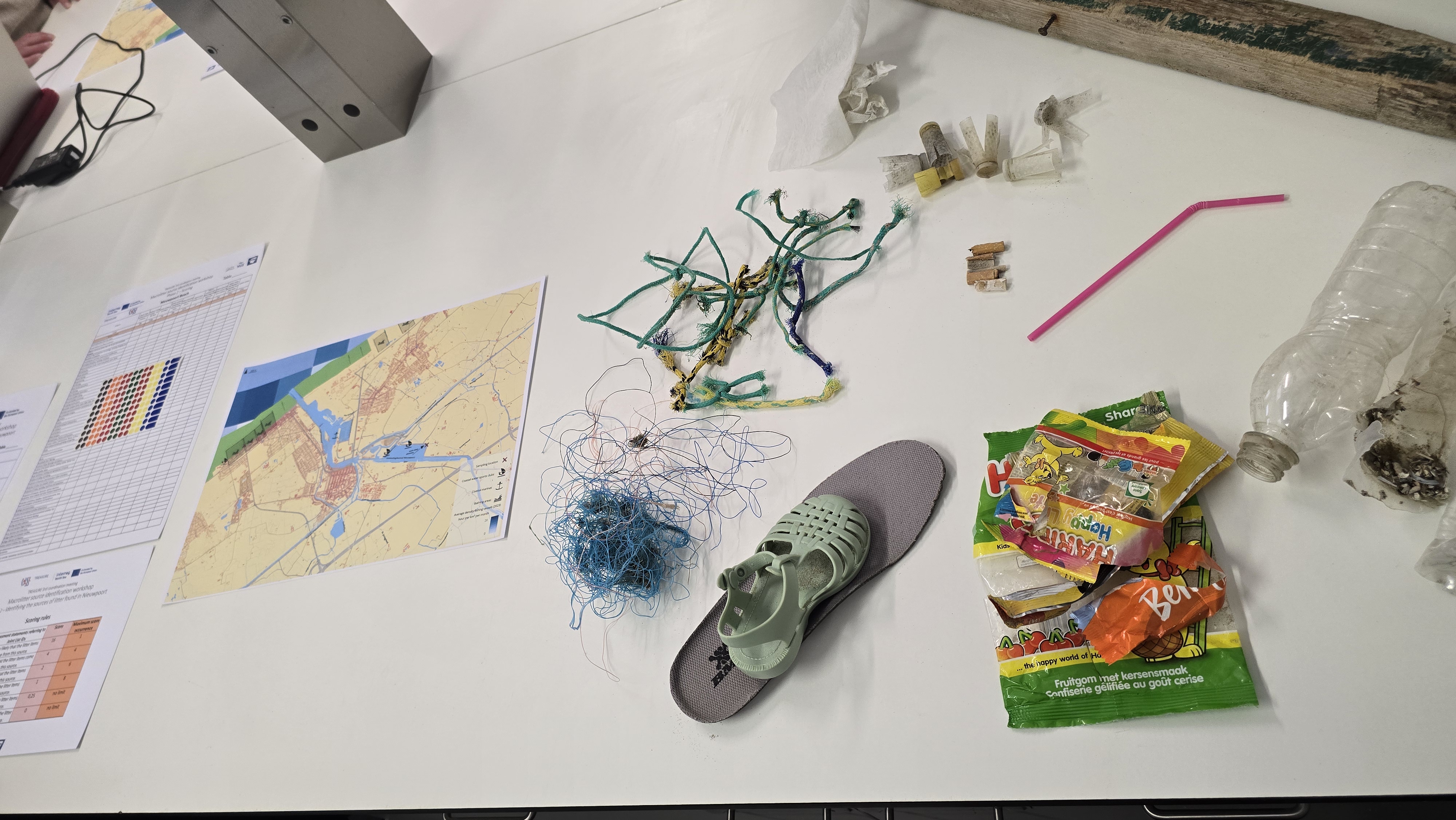
Day 2: Diving Deeper into Pillars and Policy
The second day of the meeting was dedicated to deepening discussions around the four thematic pillars of the TREASURE project: Governance & policy, data collection & analysis, prevention and behaviour change, and the removal of plastic waste.
After the pillar updates, Marta and the colleagues from the Rotterdam University of Applied Sciences, provided updates on interviews with key stakeholders, identifying gaps in knowledge and policy fragmentation. Together they then led a workshop on policy and building blocks for water governance. In groups we then continued to discuss governance and policy gaps in our respective regions and debated how creative, effective policies could be created at both local and regional levels to tackle plastic pollution.
The session was concluded with a discussion on the next steps for policy and governance, with a focus on cross-country comparisons of existing plastic reduction policies. The team is looking to build a comprehensive report that will support future recommendations at the EU level.
Looking Ahead: The TREASURE Toolbox
The day then moved on with a presentation of the TREASURE Box by Noria’s Rinze de Vries. The box is supposed to be an essential tool for helping stakeholders implement solutions for plastic reduction. Giulia Leone, a PhD student at VLIZ, also presented a model to assist in the deployment of removal technologies, which will aid decision-making in selecting the most appropriate techniques for different regions.
The second day was wrapped up with a panel discussion, focussed on how to better identify and address the needs of various target groups in the context of plastic reduction. A central theme was that solutions need to be developed at the local level, while the needs of the target groups should be considered at a higher level. It became clear that the requirements may differ from country to country, and therefore, best practices should be exchanged across borders.
One suggestion discussed was organizing a joint online meeting with representatives from other projects in the field of plastic waste. This would help collect their findings and "lessons learned," which could then be used as a basis for the future development of solutions. Such an exchange could serve as a starting point for the long-term implementation of best practices and the sustainable evolution of the projects.
The panel members also stressed the importance of involving end-users such as ports, municipalities, NGOs, schools, and the industry more actively. One possible solution discussed was the joint development of "Serious Games". This interactive approach could help raise awareness while also providing concrete actions for plastic reduction.
Overall, the panel discussion was a key step in understanding what tools and approaches could assist different target groups in achieving their goals for plastic reduction and how these solutions can be applied effectively and purposefully.
In the afternoon we then travelled to Nieuwpoort, visiting the site of the Belgian Living Lab. The VLIZ Team showed us the possible location for the installation of the plastic catcher. The selection of the location will be informed by precise modelling of the existing data on water flow and plastic distribution. This data is for instance provided by the Plastic Pirates campaign, to which we have received an inspiring on-site introduction. Some partners have expressed their keen interest to introduce the Plastic Pirates method to their own living labs – highlighting once again the profound value of transnational cooperation projects, such as TREASURE.
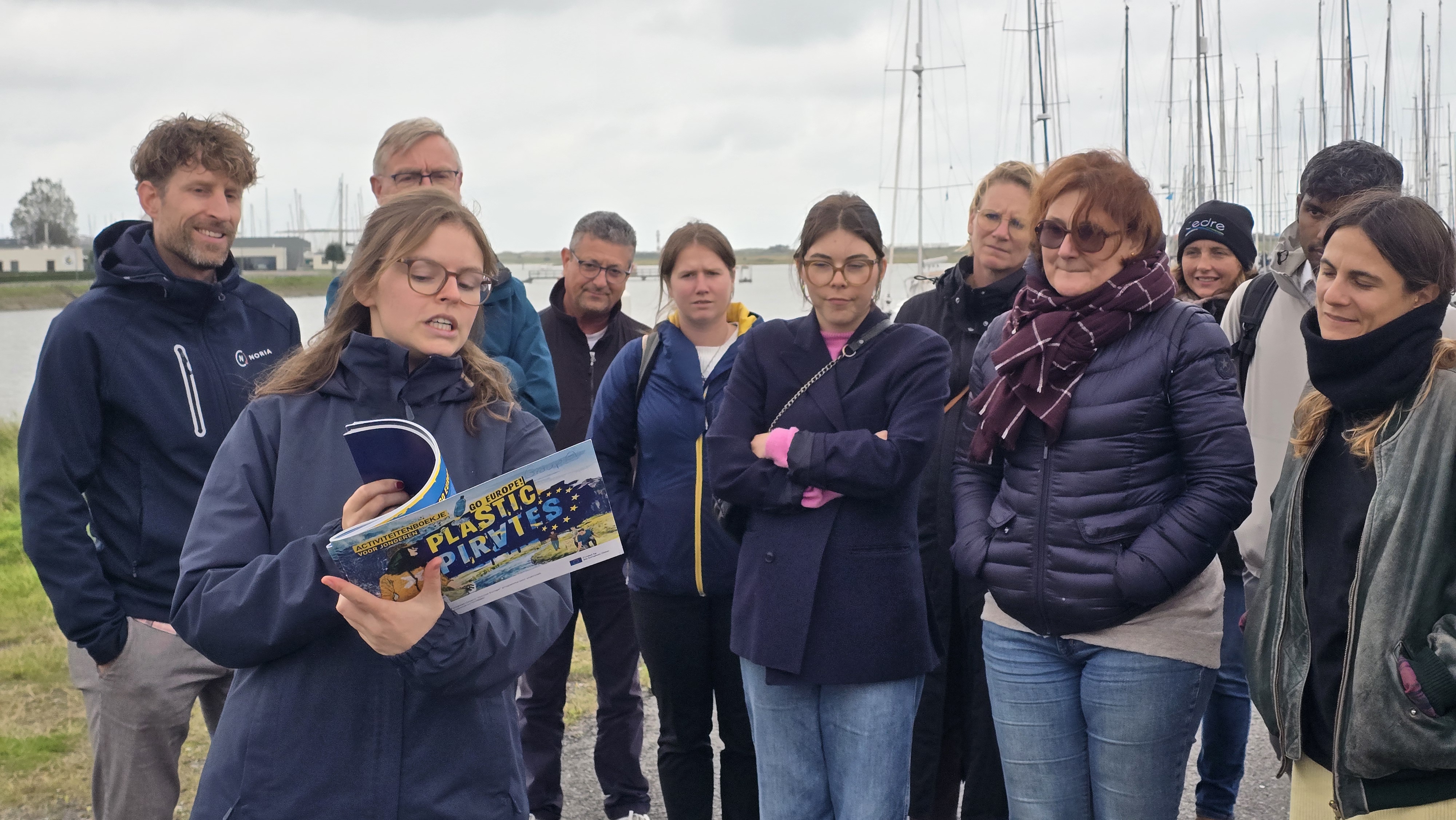
Another highlight was the demonstration of different sampling methods. The colleagues from VRIZ carried out a sampling with the Ferry Box and the colleagues from ULCO demonstrated their aquatic drone. To the delight of the project partners, they let us test ride the drone ourselves!
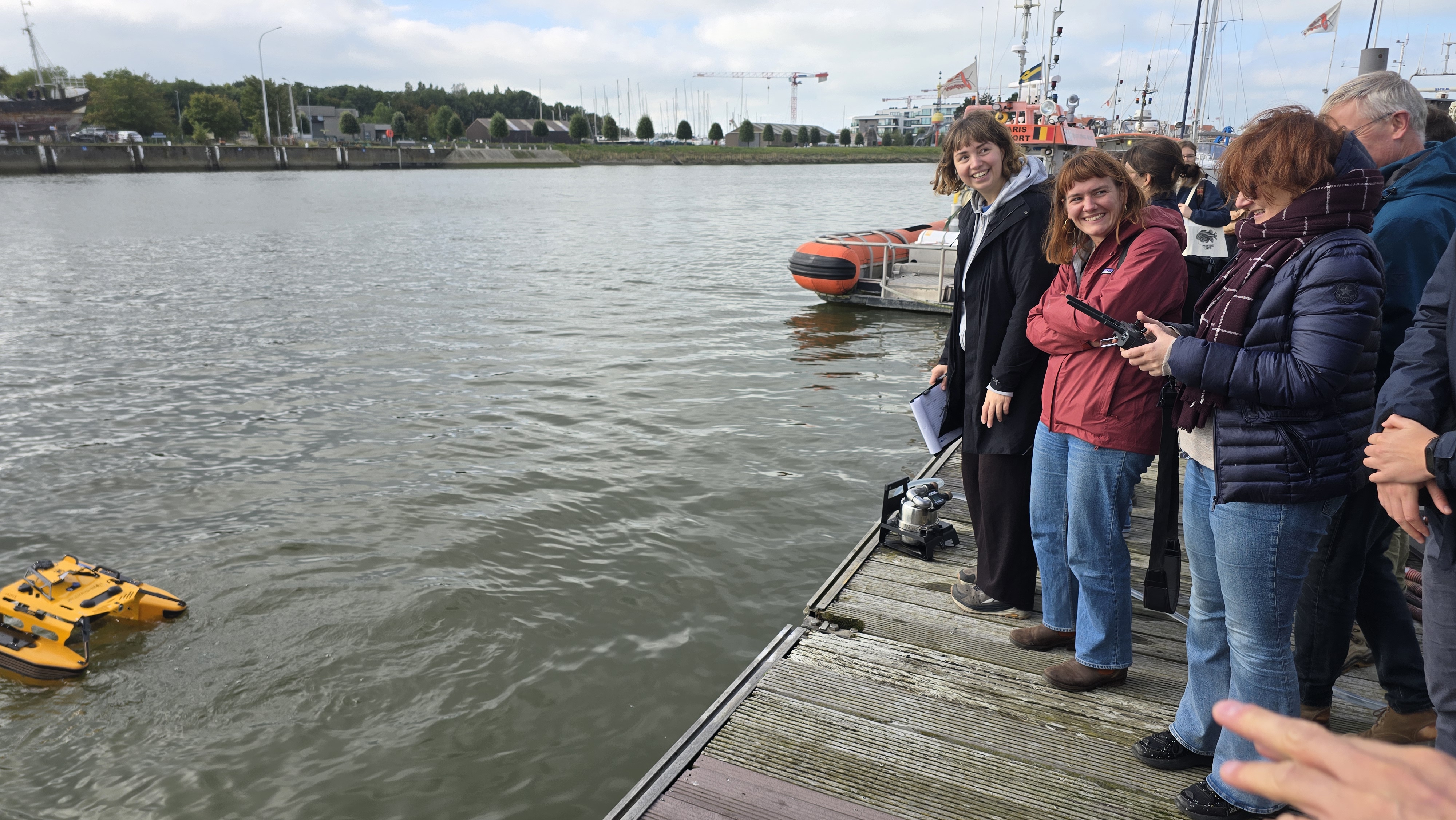
With the meeting's successful discussions and knowledge sharing, the TREASURE project continues to build momentum in its mission to reduce plastic pollution in the North Sea region. The collaborative spirit evident throughout the event reinforced the importance of continued cross-border cooperation and the active involvement of local communities and stakeholders in developing and implementing effective solutions.
As the project moves forward, the insights gained from the Oostende meeting will shape the path ahead, ensuring that TREASURE’s impact will be felt across Europe in the years to come.
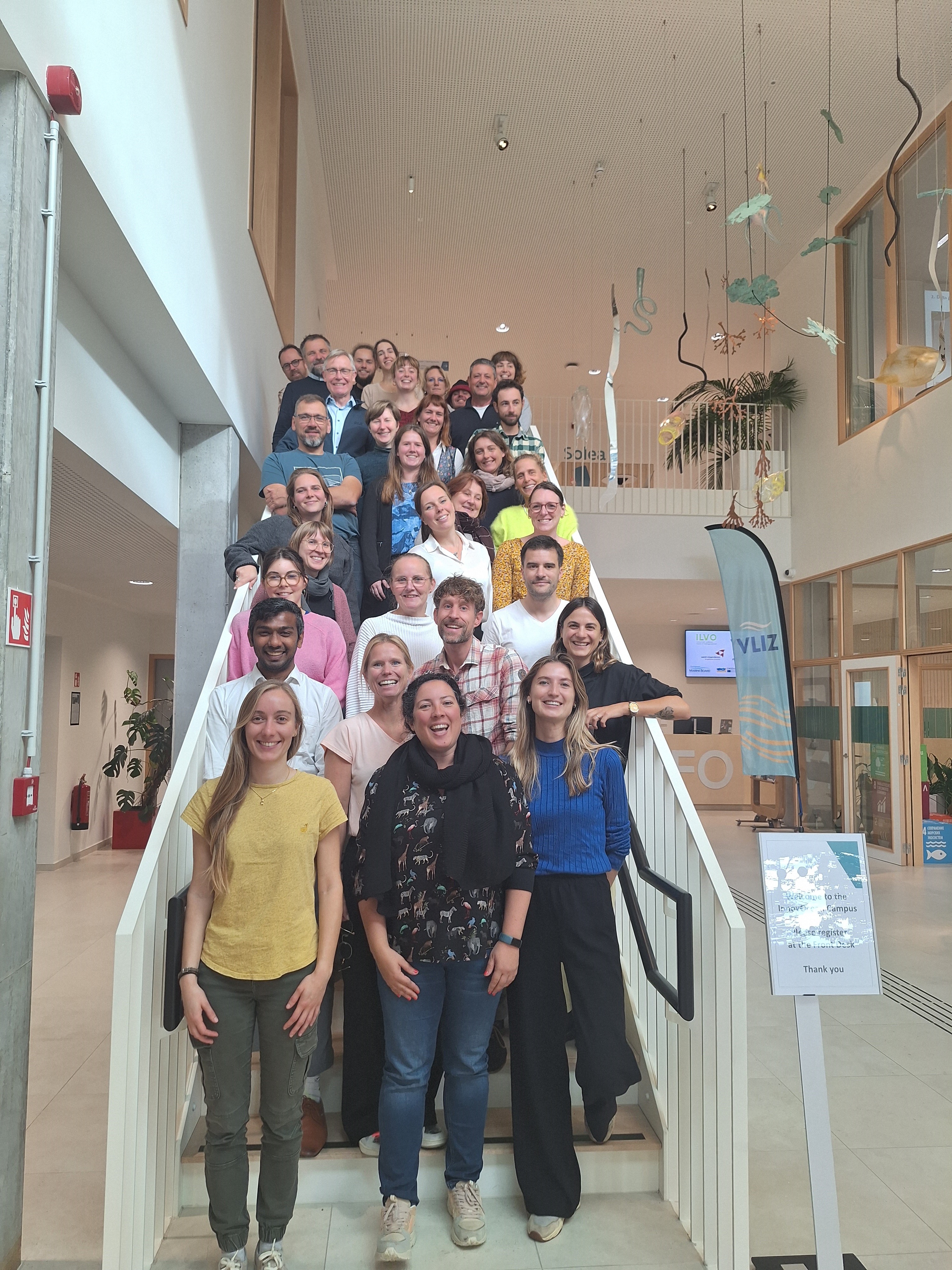
On behalf of the entire consortium, a huge “THANK YOU!” to everyone at VLIZ for organising this memorable project meeting!

